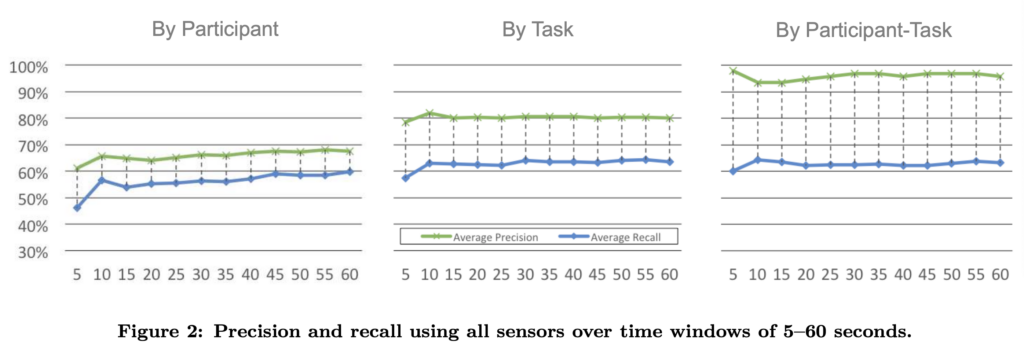Using Psycho-Physiological Measures to Assess Task Difficulty in Software Development
Authors: T. Fritz, A. Begel, S. Müller, S. Yigitt-Elliott, M. Züger
Software developers make programming mistakes that cause serious bugs for their customers. Existing work to detect problematic software focuses mainly on post hoc identification of correlations between bug fixes and code. We propose a new approach to address this problem — detect when software developers are experiencing difficulty while they work on their programming tasks, and stop them before they can introduce bugs into the code. In this paper, we investigate a novel approach to classify the difficulty of code comprehension tasks using data from psycho-physiological sensors. We present the results of a study we conducted with 15 professional programmers to see how well an eye-tracker, an electrodermal activity sensor, and an electroencephalography sensor could be used to predict whether developers would find a task to be difficult. We can predict nominal task difficulty (easy/difficult) for a new developer with 64.99% precision and 64.58% recall, and for a new task with 84.38% precision and 69.79% recall. We can improve the Naive Bayes classifier’s performance if we trained it on just the eye-tracking data over the entire dataset, or by using a sliding window data collection schema with a 55 second time window. Our work brings the community closer to a viable and reliable measure of task difficulty that could power the next generation of programming support tools.

